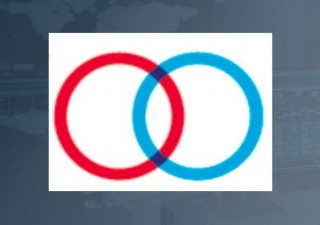“The draft mainly proposes four amendments: Firstly, the waiting period after the anti-notification is extended from originally 15 to 20 days, which is beneficial to the right holders and provides sufficient time for them to assert their rights. Secondly, the vendors suspected of infringement are allowed to provide security to suspend the measures taken against them by the platforms, so that they can resume normal operations within a certain period of time. Thirdly, if the vendors' declarations of non-violation are false and cause the right holders' losses to increase, they'll be doubly liable for compensation. Fourthly, the accountability for e-commerce platforms has been strengthened. If the operators of the platforms fail to take necessary measures to stop the infringement committed by the vendors, and the circumstances are particularly serious, the relevant departments may restrict them from carrying out relevant network business activities. The ultimate sanction will be revoking licenses related to certain network operation,” says Xiangjing Luo, a partner at Jadong IP Law Firm in Beijing. “The changes are small in scope and mainly focus on provisions related to IP protection. Generally speaking, the proposed amendments are welcomed by the public. Firstly, the infringement, piracy and unfair competition in e-commerce activities not only infringes upon the interests of the obligee, but also has a great negative impact on the interests of consumers. To strengthen the protection of IP is good for both right holders and consumers. Secondly, in recent years, China has continuously strengthened its IP protection efforts, and the degree of social consensus on IP protection has also been deepening. The public has understood and gradually accepted the trend of strengthening IP protection by the state. Thirdly, this proposed amendments, on the overall trend of strengthening the protection of IP, also pays attention to taking into account the actual operating conditions of the vendors in the platforms, and has implanted with a security system, so that before being confirmed as infringing by judicial or administrative procedures, the vendors may continue to operate conditionally. Thus certain balance between the obligees and the vendors has achieved.”
“As to the e-commerce platforms, the current e-commerce law has clearly stipulated the obligations of them on the protection of IP. For example, the platforms should formulate the rules for the protection of IP. Upon receipt of the notices from the obligees, the platforms shall promptly take necessary measures to delete, block, disconnect, or terminate the transactions and services, and shall promptly transmit the notices to the vendors within the platforms. If the platforms know or should know that certain vendors within the platforms have infringed IPRs and fail to take necessary measures, they shall be jointly liable with the infringers. If the platforms violate the above-mentioned obligations, the relevant IP administrative departments may impose administrative penalties. The above legal provisions have been applied in the judicial practice, and played a considerable restrictive role on the platforms,” Luo says. “On this basis, the amendment-draft has added new legal responsibilities to the platforms, that is to say, if the operator of an e-commerce platform fails to take necessary measures according to law against the vendor who commits an act of infringement of intellectual property rights, and the circumstances are especially serious, the relevant authorities may restrict the operator from carrying out relevant network business activities until the relevant license for network business is revoked. The provisions of this article are indeed very severe! The proposal of this provision should be related to the repeated prohibition of certain types of copyright infringement and piracy on certain platforms. The right holders suspect that certain platforms are indulging and shielding the infringers, and have long wanted to toughen penalties. But e-commerce platforms certainly don’t want to see this proposed provision become a reality. We hence believe that they will definitely express their opinions and lobby through various channels before the amendment is finalized.”









